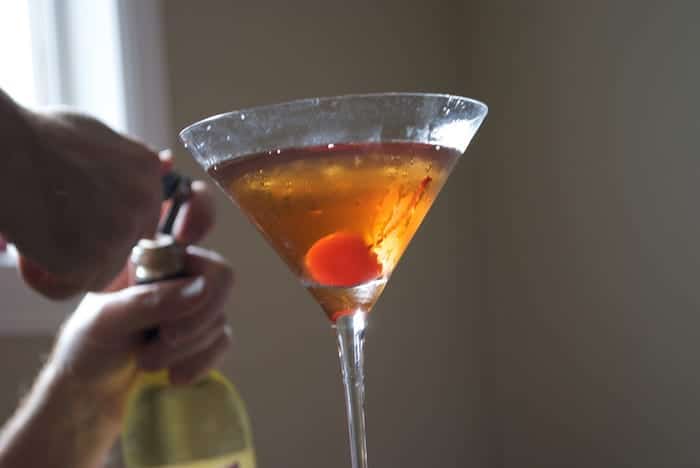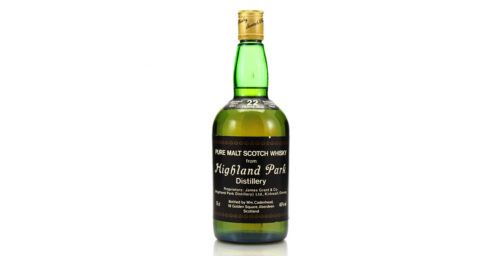In the pantheon of whiskey cocktails, the Manhattan vies only with the Old Fashioned for the top spot. Various schools of thought about the proper whiskey – bourbon, rye, or Canadian – exist, although there appears to be consensus that the right choice can only be a North American one (a Manhattan made with scotch is called a Rob Roy).
But whiskey is just one part of a Manhattan. What about the other main component, vermouth?
Vaguely bitter, neither wine nor spirit, and decidedly European, vermouth has, until recently, been a mystery to the majority of American drinkers. The last few years have brought a bit of a resurgence, buoyed by the craft cocktail movement, but I have my suspicions that most people who can confidently navigate the crowded whiskey aisle start to feel their moorings loosen the minute they round the corner to the sparsely populated shelf of vermouth

But have no fear – vermouth is a wonderful thing. Essential to cocktails and surprisingly delicious on its own, vermouth is nothing more than wine that’s been sweetened, fortified with brandy, and then aromatized with various herbs, some of which can be a little bitter.
There are two main types of vermouth: sweet, and dry. Manhattans call for sweet vermouth, which is sometimes called red vermouth. As its names suggest, it’s a both sweeter and darker in color than dry vermouth.
The most commonly available sweet vermouth is probably Martini & Rossi, and that’s a fine option if it’s all you can lay your hands on. But if you’re looking to take a major step up, try Carpano Antica, a sweet vermouth made by Fratelli Branca, the same people that bring us Fernet Branca. Slightly bitterer and a lot more complex than Martini & Rossi, Carpano Antica makes a fantastic Manhattan, particularly with an equally robust whiskey (try Rittenhouse Rye). Cocchi Vermouth di Torino is another good option, with a nice richness and slightly less bitterness than Carpano Antica – a great match for a mellow bourbon like Buffalo Trace.
A final note: it may go without saying, but vermouth should always be stored in the refrigerator, and not for more than a month or two – it is wine, after all, and though it degrades a bit more slowly than pinot grigio, it won’t last forever.



